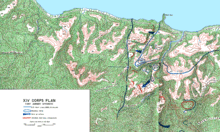 One of the jobs that is quite often overlooked when it comes to offshore oil rigs are electrician jobs offshore. Many people know that there are Metallic Taste After Electric Shock jobs such as driller and roustabout, but they are not aware that every rig large and small requires the service of an electrician as well.
One of the jobs that is quite often overlooked when it comes to offshore oil rigs are electrician jobs offshore. Many people know that there are Metallic Taste After Electric Shock jobs such as driller and roustabout, but they are not aware that every rig large and small requires the service of an electrician as well.
The electrician is one of the key personnel on an offshore, as well as an onshore rig. Electrician jobs offshore are going to be largely the same as they are will be required to have a working knowledge of and experience in your field. You need either recognized qualifications or experience as an apprentice in your past in an industrial environment.
Suitable experience to qualify you as a technician may be used in place of a diploma and a diploma may be used in place of experience if you demonstrate that you are capable of working well in the offshore oil rig environment. You will also be required to have some good trouble shooting experience and skills so that you are able to prove useful with very complex systems and equipment. Your experience must be highly verifiable in an industrial jobs setting.
Your job will include working with high voltage generators and distributors, as well as working with lower voltage systems. In addition you will need to know a great deal about protection systems for both low voltage as well as high voltage.
Your job will take you into hazardous areas, as well as muddied and watery areas. You will work in some of the dirtiest environments as well as in weather that is not conducive to work. High winds, stormy weather, and bitter cold or extreme heat could be part of the climate that you practice your craft in.
You may be required to crawl into small areas, or to climb into higher ones. You will need to have a working knowledge of HVAC, Industrial automation, diesel engines, Motor drives, lighting, laundry systems, cooking Highway Electrical Systems Electrician equipment, and maintenance systems for housing type scenarios. All of this may be done while the weather is icy cold or blast furnace hot. Still think you want to be involved in electrician jobs offshore?
The reality is that your job has some outstanding compensation for the work that you do. You will have about 2 weeks or 4 weeks on duty. These are generally 12 hour days. For the same amount of time that you work on the rig, you will receive equal time off duty. The pay is outstanding quality, with a chief electrician receiving about $80,000 in compensation and sometimes more.
The next in line, the electrician is generally paid about $60,000-$65,000. His duties will be much the same as the chief electricians and he will report to him, while the electrical contractor will make $50,000 per year for his work. Generally there are benefits involved as well as a great rate of pay and unending excitement.
